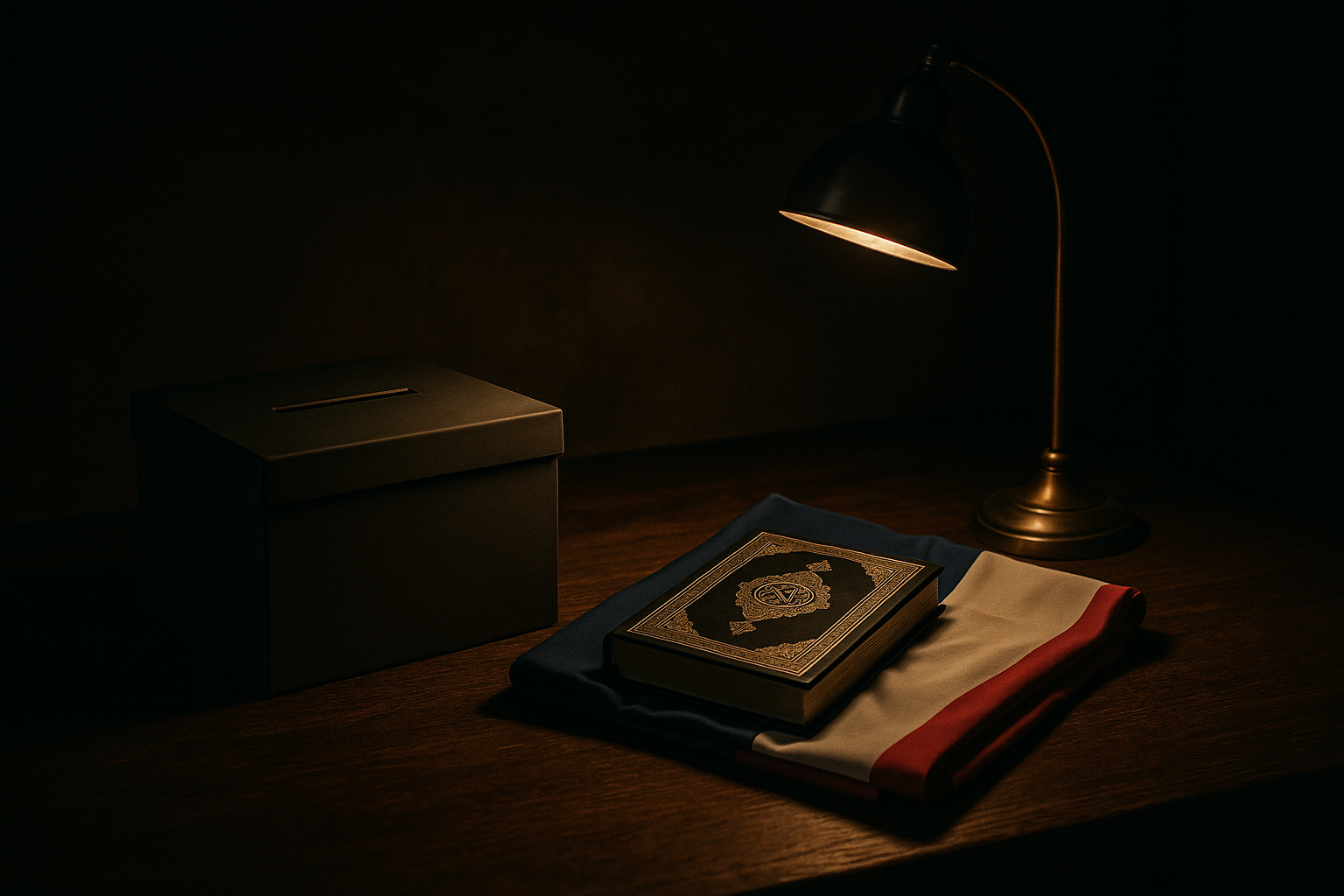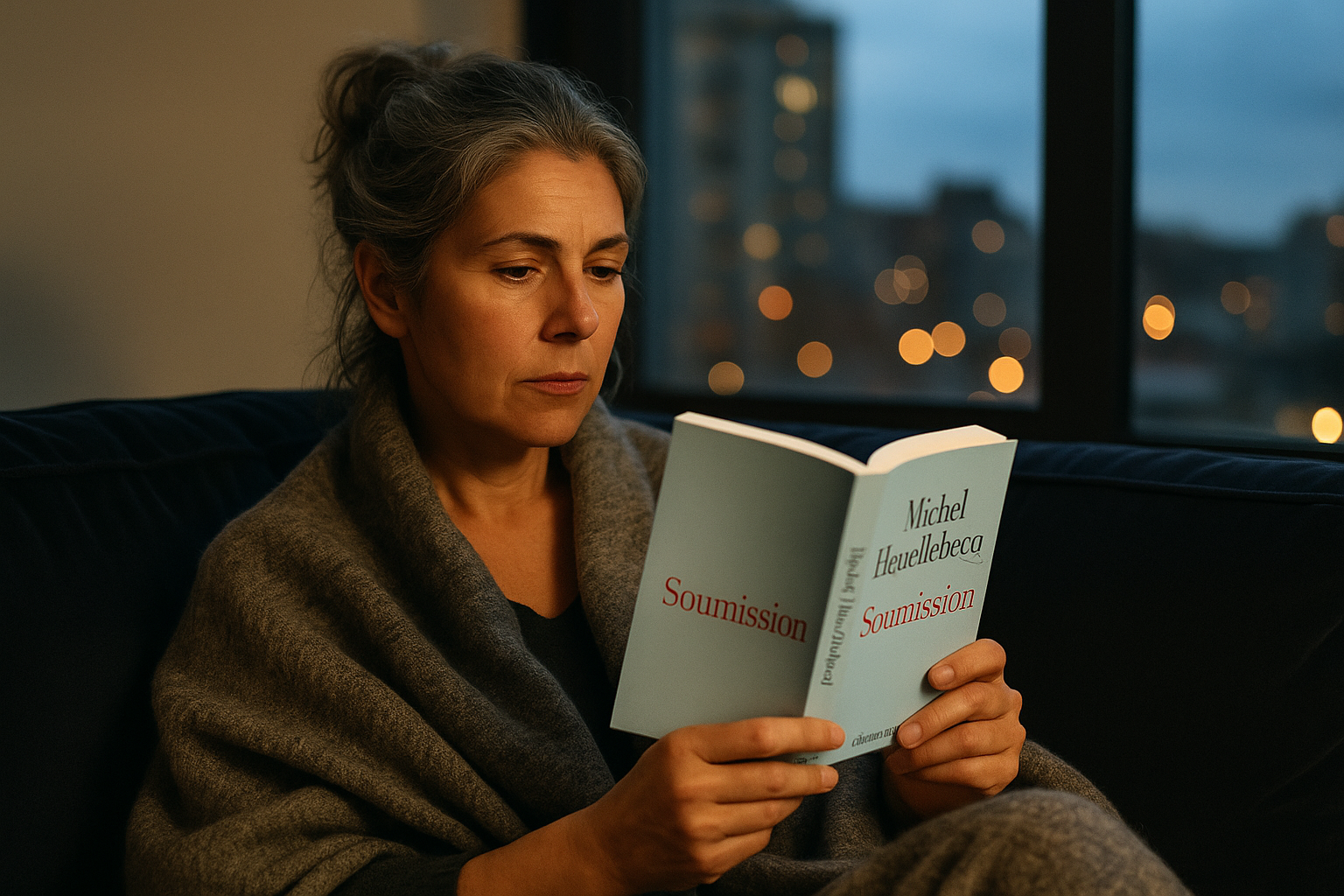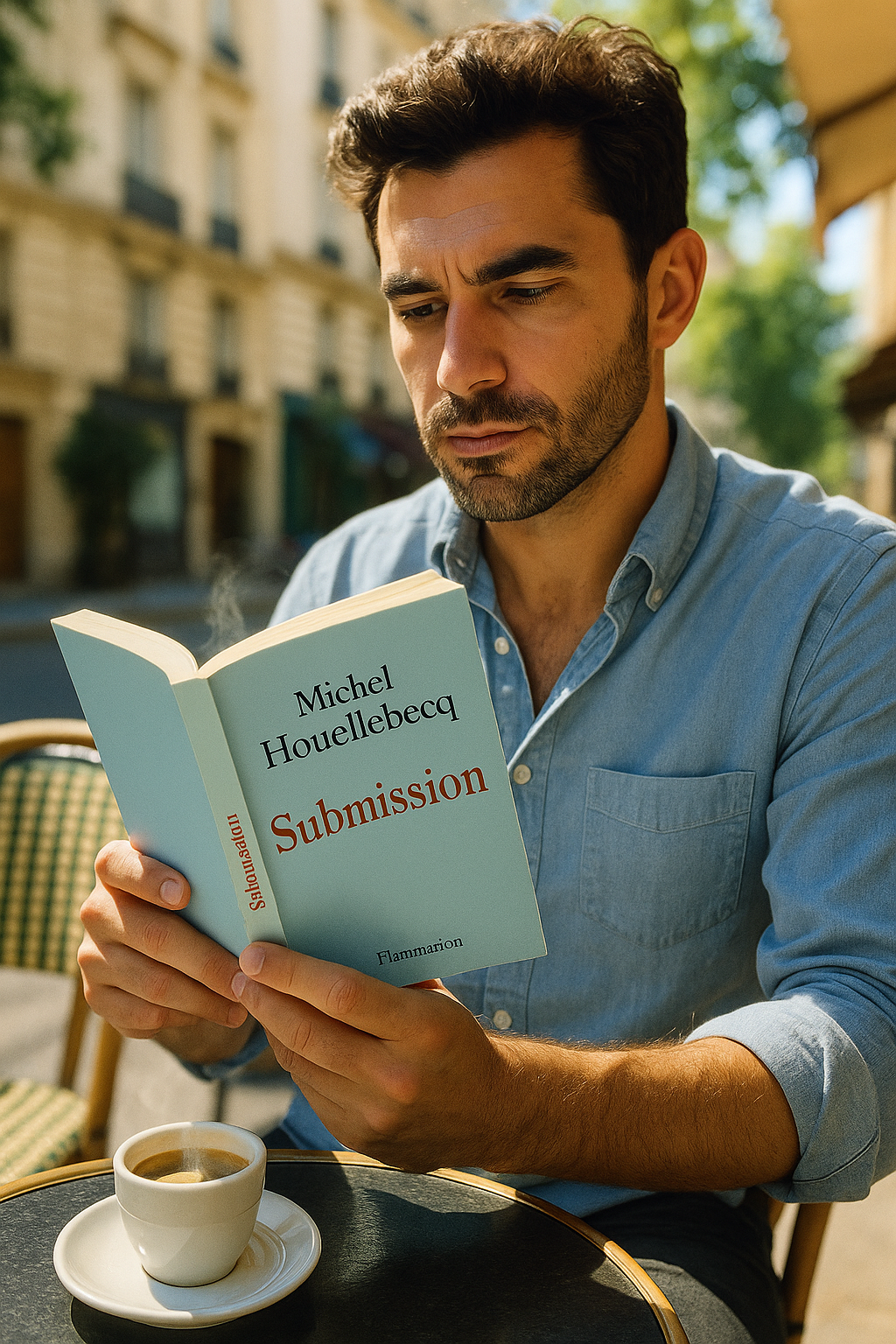A Futuristic France Between Fiction and Reality
Immerse yourself in the world of Michel Houellebecq’s “Submission”, a captivating novel that questions the future of Western society in the face of political Islam. Discover why this controversial and visionary work is essential for any reader eager to understand the current dynamics of our world.
Introduction
“Submission”, Michel Houellebecq’s novel published in 2015, explores a fictional France of 2022, tilting under the influence of an Islamic party. Released on the same day as the attack on Charlie Hebdo, the book has attracted immense attention, between fascination and controversy, for its provocative treatment of themes such as politics, religion, and cultural identity.
Summary and structure
The novel follows François, a disillusioned academic specializing in the works of J.K. Huysmans. As France prepares to elect Mohamed Ben Abbes of the Muslim Brotherhood Party, François’ life takes an unexpected turn. The election victory brings with it profound social changes, and François finds himself faced with a dizzying personal choice in the face of the new society that is taking shape. Houellebecq uses first-person narration, allowing total immersion in the protagonist’s inner dilemma and the twists and turns of a rapidly changing society.
Themes and analysis
“Submission” tackles the crisis of identity head-on, on both a personal and national level. The book questions the place of religion in society, portraying a France that, in the face of spiritual emptiness and political disillusionment, is moving towards an Islamic model. Houellebecq explores submission from several angles: submission to a religious authority, to a new political regime, but also submission to desires and quests for meaning. This multiplicity of readings offers a wealth of analysis on human nature and the foundations of our society.
Characters and development
François, at the center of this plot, reflects the contemporary individual confronted with his own doubts and disillusionment, and the quest for meaning in his life. Secondary characters, such as François’ student Myriam and Robert Rediger, a university leader who has converted to Islam, are mirrors of the choices and compromises that each individual is prepared to make. François’ transformation from indifference to active resignation underlines the complexity of the dynamics of power and belief.
Impact and reception
On its release, “Submission” polarized critics and readers alike, some seeing it as a visionary dystopia, others as a pointless provocation. Its commercial success is undeniable, as is its role in public debate on such sensitive issues as Islam in Europe, national identity and the future of Western democracy. The cultural impact of “Submission” goes beyond the literary framework, questioning our fears and expectations in the face of an uncertain future.
Why read this book?
To read “Submission” is to engage in a profound reflection on our world, its fractures, and the possible futures that await us. The novel is an invitation to question our convictions, our relationship with others and with change. It is particularly recommended for fans of dystopias and political fiction, as well as those interested in debates on society, culture and religion. The richness of its themes and the quality of its writing make it a striking and relevant work.
Conclusion
“Submission” stands out as a provocative and essential work by Michel Houellebecq. Through the prism of daring fiction, the novel questions essential issues, making it a key piece in understanding the contemporary challenges facing our society. Its resonance with current events confirms its status as a work that is both timeless and incredibly topical.
Latest Reviews & Analyses
Stay Updated with Our Latest Reviews
Join our community to receive exclusive insights and updates on groundbreaking literary works.
Find Your Next Literary Adventure
What Our Readers Are Saying

Alex Jonhson
“A treasure trove of insights and critiques that deepened my appreciation for classic and contemporary works alike.”






